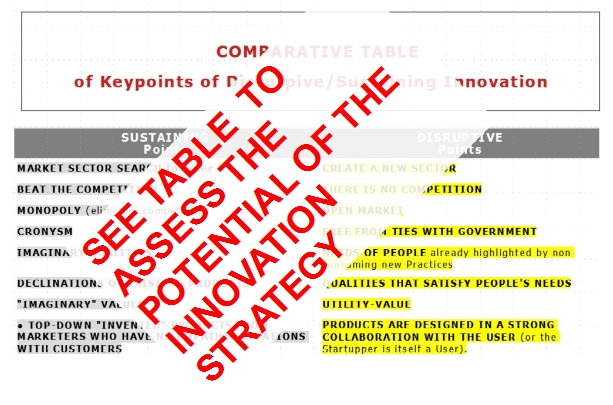
Issues related to human-made communities (Family, sports team, Society, Market, etc.) are related to the awareness in which each individual of that community acts.
.
The awareness is, in fact, the knowledge of the functioning of a system in which one acts. That is, knowing which is the best way to deal with that thing.
In a certain sense it is a question of knowing which is the best attitude to adopt in order to have useful results for oneself. But the fact is that when dealing with a community,
the best result for oneself
is when the community works optimally.
And therefore, in the end, an “egoic” attitude (which does not take into consideration the needs of other people) does not produce the same positive results produced by actions in harmony with the community.
This “awarness” is inherent in the instinct of animals. But this also applies to Man: Adam Smith summed up the concept of the correspondence between the advantage of the Community and his own advantage, noting how the Artisan (the Entrepreneur) succeeds because it draws advantages (profits) from doing something for others.
.
So the higher the awarness of people, the better the quality of the community.
Awarness is connected to responsibilization:
the greater the responsibility of people,
the better the functioning of society.
Responsibilization is the ability to assume its own part of responsibility with respect to the results obtained with an action (also to the results of a group action).
A human community functions optimally only when when conscious people act in it (people who have understood the ways in which it is necessary to act in the community to obtain useful results) and people they take responsibility to the problems of their community.
.
The fact is that
to be aware of how a community works
it is necessary to know the factors that determine
the conditions of the Community.
That is, a person who does not have enough information cannot be aware of why certain results are obtained. And therefore, in fact, it cannot it cannot have a sense of responsibility for any problems created by its actions.
.
More specifically, awareness exists only when an individual has a direct and complete experience of the actions developed by it on a social level.
In other words, the individual can have an effective knowledge of the mechanisms of cause and effect (awareness) with respect to his actions (or a knowledge of the real causes of his community’s problems) only when it deals directly with his “social actions”. Otherwise, as when it delegates the “responsibility” of a “social” action to others, this responsibility is lacking.
In our modern democracy, the Public Administration deals with most of the “social actions” of the Citizen. And so the citizenship will be lacking awarness in respect to the problems created in the Society.
.
In other words, paradoxically,
the modern (western) society
is based on “irresponsible” actions
(the citizens, not having the necessary information, lack the awarness with respect to the consequences of their actions).
.
In such a context it is impossible to find solutions to the current problems of our social system (economic crisis due to “uncontrolled” costs, pollution, etc …).
The impossibility to know the real cost of some actions as cause of some problems of our society
The question of lack of awareness regarding the factors which generate the current problems of the “Western System” emerges, for example, in the problem of the impossibility for the Citizen to know the actual cost of many of his actions with social repercussions (ie, in these cases the Citizen is not able to understand , while an action is taking place, what the consequences of this action will be).
.
For example, in the case of plastic pollution, consumers do not know at all the real cost of the plastic they purchased.
In fact, the Citizen buys the food already packed in a plastic package, but does not pay the real cost of the package (ie the Citizen lacks awarness of the real cost of the package).
This packaging will in fact be disposed of with systems for which the customer
1) is not able to get an idea of costs, as the disposal costs will be paid to him in the form of taxation.
2) does not see the consequences of his choice directly, since plastic waste is “hidden under the carpet” (or is “recycled” with methods that produce other forms of pollution).
In this way the Customer buys the plastic package thinking that “it is much more comfortable” than the traditional way of buying loose food (with its own container), or wrapped directly by the shopkeeper.
In scientific terms, the problem of the Economic system of modern Democracy is that in it the possibility of actually evaluating the cost/benefit ratio of an action is lost.
.
The Responsibilization of the Citizen
as regards social costs
of its consumption habits,
MAY EXIST ONLY AT THE MOMENT
IN WHICH IT PAYS,
AT THE TIME OF THE PURCHASE CHOICE,
THE REAL COST OF THE CHOICE.
In this case, we would return to the virtuous system of “free initiative”, in which there would be those who would provide an advantageous alternative offer to products sold in plastic packaging.
And the Customers, who rightly base their purchase decisions on a price basis (particularly in cases of economic crisis like the current one), would spontaneously develop an ecological consumption method.
< see My Articles on Consumerism 2.0 >

